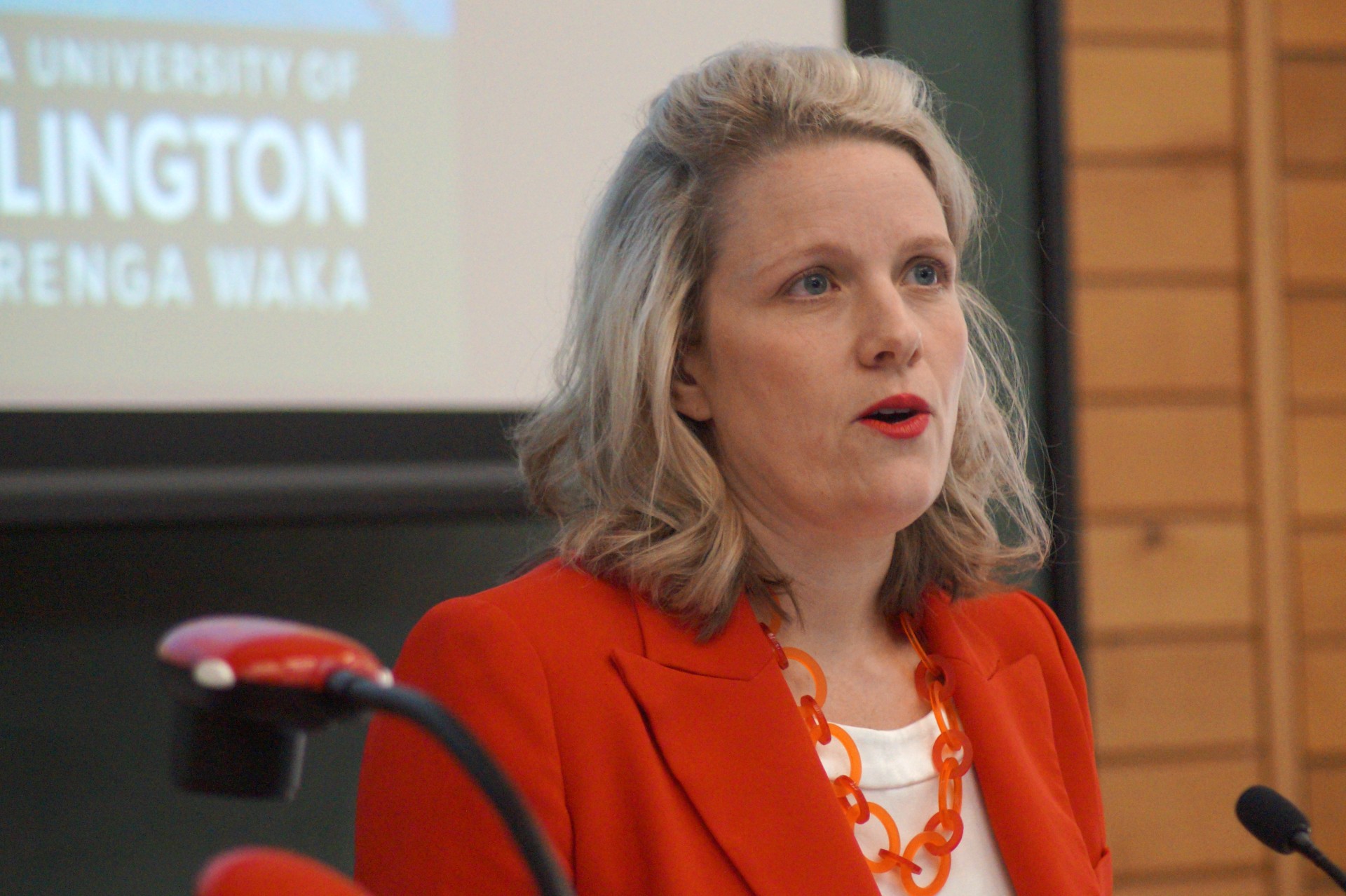Foreign interference is threatening decades of work on building social cohesion in Australia and New Zealand, an Australian minister has said in a speech also promising progress on the rights of Kiwis across the ditch
The Australian government wants to work with New Zealand on foreign interference and taking down hackers after a spate of devastating cyber attacks in the country, a senior minister says.
Australian home affairs minister Clare O’Neil, who holds responsibility for cyber security and immigration among other issues, has also provided further reassurances regarding the rights of Kiwis living in Australia - although without any specific details on new progress.
O’Neil spoke to a Victoria University of Wellington audience on Friday morning as part of a relatively low-profile visit to New Zealand this week.
Australia had endured ※an incredibly shocking six weeks in the world of cyber security§, O’Neil said, with the personal data of 10 million customers stolen from telecommunications giant Optus and Russian hackers publishing the health information of insurer Medibank’s clients.
※What we are experiencing now is hackers who live on the#opposite side of the world who are holding our citizens’ data for ransom, and trying to exact a toll on our citizens who are completely innocent victims.§
In response to the attacks, the Australian federal police and Australian Signals Directorate (responsible for cyber warfare and information security) were forming a permanent, 100-person team tasked with shoring up the country’s cyber defences and launching counter attacks against hackers.?
※We shouldn’t see success in cyber incidents as having someone behind bars at the end of the day - it’s just not going to always be possible for us. What we want to do is actually seek out the groups around this world who would seek to do our citizens damage and debilitate them before they have that opportunity,§ O’Neil said.
Australia had also volunteered to lead a global ransomware initiative, and believed New Zealand and other members of the Five Eyes intelligence alliance could work together to tackle the growing cyber threat.
※Foreign interference is a threat to our collective stability, prosperity and sovereignty. It fosters division and erodes trust in our institutions, and it significantly threatens the social cohesion that New Zealand and Australia have spent decades upon decades building.§
- Clare O’Neil
O’Neil brushed off suggestions the government’s plans were equivalent to cyber warfare, while she also side-stepped questions about the role of state-sponsored actors in such attacks.
※It’s not constructive for me to hype the language, basically, if I can be direct about that, and so I don’t think that’s the conversation about cyber security that Australian citizens want us to have#drawing in some of the really challenging geopolitical elements complicates the picture somewhat.§
However, she did speak separately about foreign interference concerns in Australia, noting the Australian Security Intelligence Organisation’s decision to label espionage and foreign interference the country’s top security threat - displacing terrorism.
※Foreign interference is a threat to our collective stability, prosperity and sovereignty. It fosters division and erodes trust in our institutions, and it significantly threatens the social cohesion that New Zealand and Australia have spent decades upon decades building. It’s undemocratic, it’s wrong, and it’s dangerous,§ O’Neil said.
While there was a place for legitimate foreign engagement in Australia and elsewhere, the covert and malicious nature of interference efforts crossed a line as agents targeted government, industry, academia, the media and communities.
Australia’s universities were a particular area of concern, with attempts at wide-scale theft of intellectual property, harassment of researchers, and questionable collaborations with overseas institutes.
Asked about the relative openness of foreign interference discussions in Australia compared with New Zealand, O’Neil said it was not for her to suggest other countries should be doing anything differently, but open and transparent conversations with the worst-affected sectors had been of significant benefit.
※The intelligence world has a natural sense of secrecy that’s inherent to the work that they do, and I think some of the foreign interference conversation does [bring] with it a little bit of an obligation to share a little bit more, at least in Australia.§
Expat rights
O’Neil also spoke broadly about the rights of New Zealanders living in Australia, with Australian prime minister Anthony Albanese agreeing in July to work towards an improved pathway to citizenship by Anzac Day next year.
※There’s been various attempts over time to fix different elements of this that have in themselves created new inequities and new problems,§ she said, adding the Australian government hoped to make significant progress in the area ※over the coming couple of years§.
O’Neil did not mention the more contentious issue of Australia’s deportation policy, which has seen a number of convicted criminals sent ※home§ to New Zealand despite some having left the country as children.
In July, Albanese said his country would take a ※common sense§ approach to such situations, although it is unclear what difference that will make in real terms.
The minister declined to speak to media after her speech, although she did take a limited number of questions from the audience.


